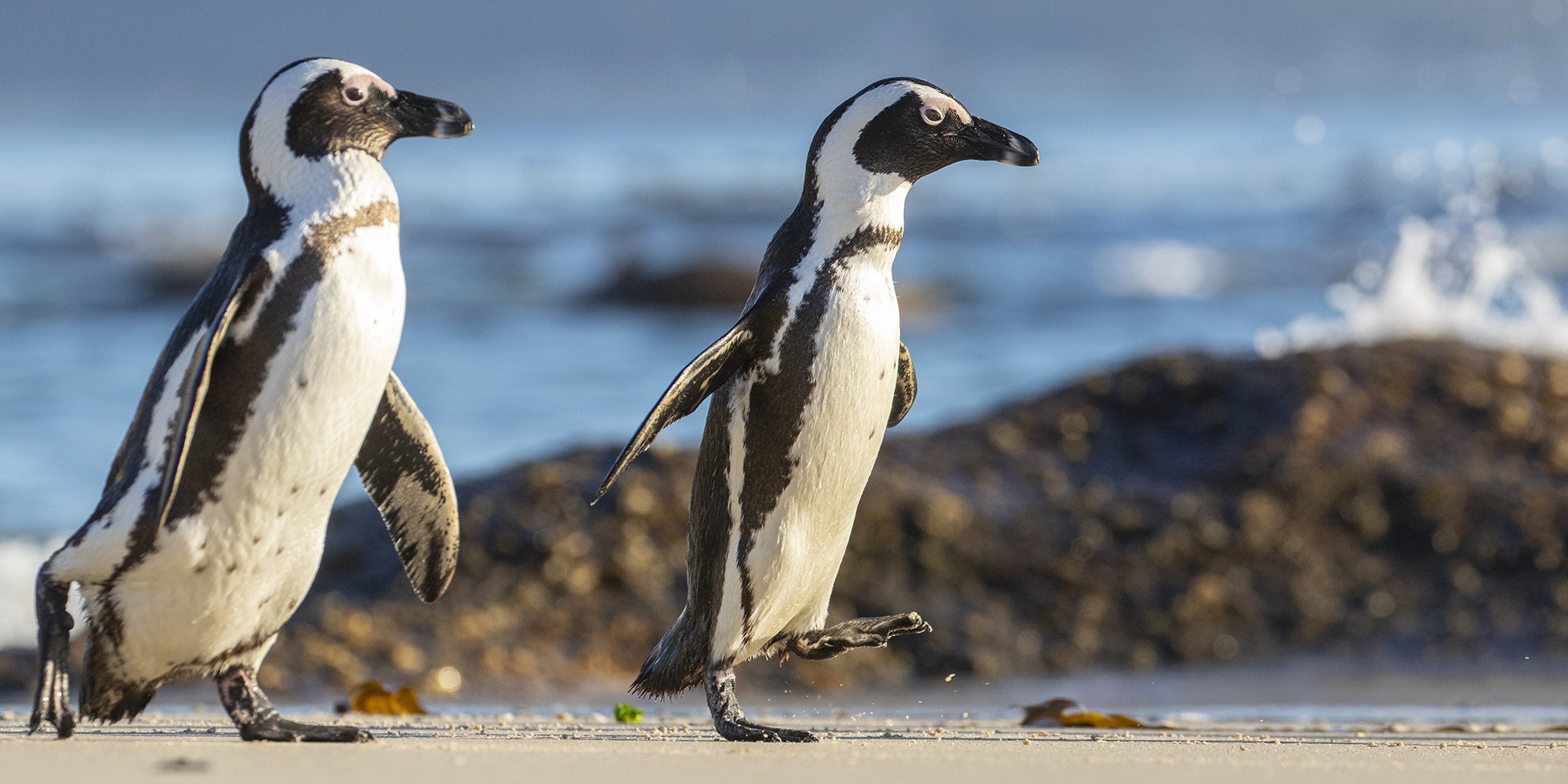African penguin (Spheniscus demersus) populations have plummeted from millions in the 1930s. Once abundant, South Africa’s only penguin species has declined by approximately 95% since pre-industrial times, leading to its classification by the International Union for the Conservation of Nature (IUCN) as critically endangered.
Today, fewer than 10,000 breeding pairs remain in the wild, placing them on the brink of extinction. The main causes: overfishing, which depletes their primary food sources; habitat loss; disease; predation and climate change.
As recently as 100 years ago, St Croix Island in Algoa Bay was teeming with African penguins, to the extent that the island’s surface appeared black from the thousands of little “tuxedoed” birds crowding its slopes and peaks. Bird Island, too, was once overrun with penguins, in a good way. Today, however, these once thriving colonies are much quieter, sustaining considerably fewer birds.
In a significant conservation win for African penguins this year, an out-of-court settlement was reached between leading conservation groups — BirdLife South Africa and the Southern African Foundation for the Conservation of Coastal Birds (SANCCOB), and the small pelagic fishing industry along with the Department of Forestry, Fisheries, and the Environment (DFFE), facilitated by the Biodiversity Law Centre.
No-fishing zones
This agreement will create no-fishing zones around key African penguin colonies, including St Croix and Bird islands, which form part of the Addo Marine Protected Area (MPA) under the conservation of Addo Elephant National Park.
Collectively, Algoa Bay is home to about 3,000 breeding pairs, with these two islands accounting for nearly 80% of the penguin population under South African National Parks’ (SANParks) management.
The new zones aim to provide them with much-needed protection by removing fishing pressure on their main food sources, i.e. sardines and anchovies. These birds simply cannot compete with fisheries, particularly during the breeding season when they have limited foraging range while caring for their eggs or chicks.
African penguins play a crucial role in maintaining the health of the marine ecosystem, which ultimately benefits people too. As apex predators, penguins are key indicators of ecosystem health — if penguin populations decline, it signals potential issues in the broader environment, often due to overfishing or habitat loss.
SANParks, in its commitment to biodiversity conservation and preventing species extinction, has prioritised protection of the African penguin within the Addo Marine Protected Area.
The park’s goal to boost penguin numbers reflects the broader importance of safeguarding these birds as their wellbeing is tied directly to the health of the surrounding marine ecosystem that supports local economies, tourism and sustainable fisheries.
The fishing closures are not only crucial for the penguins, but also for the long-term health of the marine ecosystem, including important fish stocks in Algoa Bay. The Addo Marine Protected Area, already a key part of South Africa’s marine conservation strategy, now has additional protections that will help safeguard biodiversity in the area.
Compromise
The final decision around the closures was a culmination of more than two decades of collaborative research and scientific engagement guided by science. Stakeholder negotiations and compromise eventually determined the boundaries of individual colonies in an attempt to find a middle ground between balancing ecological concerns and the needs of the fishing industry.
This agreement therefore reflects the importance of collaboration between conservationists, the fishing industry and government bodies, showing that with the right approach, both nature and industry can coexist sustainably.
This settlement is a hopeful development for African penguins whose population has been in steep decline for decades.
With these new protections, the penguins of Algoa Bay have been given a better chance to recover, ensuring that future generations can continue to enjoy these iconic birds in their natural habitat. DM
Dr Cloverley Lawrence is a marine scientist with SANParks.




